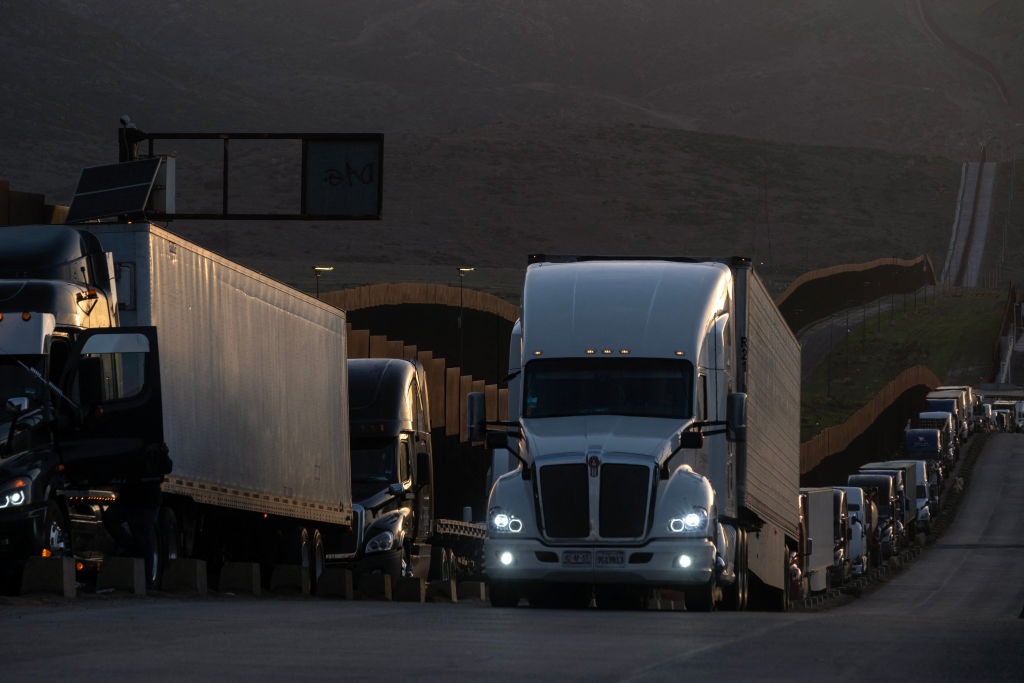5 things to consider buying before new U.S. tariffs on China kick in Sept. 1
- President Donald Trump says the U.S. will impose a 10% tariff on $300 billion in Chinese imports starting Sept. 1.
- Unlike previous U.S. tariffs on China, the new levies target consumer goods -- that means potentially higher prices for products such as electronics, apparel and more.
- U.S. importers, not China, would pay the new tax if it goes into effect, and retailers worry that could hurt consumer spending.
The U.S. trade war with China may soon hit a long list of consumer products, from smartphones to footwear, this fall if a 10% tariff on $300 billion in Chinese imports takes effect Sept. 1, as President Donald Trump has threatened.
It can be hard to measure the impact of higher tariffs on consumer prices. That's because some companies may choose to absorb the added costs rather than pass them on to consumers. Retailers also could hold off on hiking their prices until after the critical holiday shopping season. Meanwhile, a 10% hike in tariffs should only have a modest impact on prices.
Still, tariffs typically mean higher prices. With the U.S-China trade fight set to ramp up next month, here are five products that might be worth buying now.
1. iPhones
Many technology and trade analysts expect Apple to raise its prices if the 10% levy takes effect. Prices for Apple Xs Max iPhone start at $1,099 if the device is purchased without a trade-in. If Apple chose to pass along the entire 10% tariff onto consumers, that would mean a roughly $110 increase in prices for the device.
2. Footwear
Some 70% of footwear sold in the U.S. is made in China. Everything from flats to sneakers to workboots are already subject to 67% duties, according to the Footwear Distributors and retailers of America
New tariffs on Chinese imports would almost certainly boost shoe prices. A canvas "skate" sneaker, for instance, could rise to $58.69 from $49.99, while a typical hunting boot might climb to $222.27 from $190, according to the FDRA. Put another way, U.S. consumers could pay an additional $3 billion each year for footwear.
3. Clothing
Your clothes could cost more as well, according to what manufacturers like Ralph Lauren, Macy's, Columbia Sportswear, Kenneth Cole and J.C. Penney recently told the Office of the U.S. Trade Representative. J.C. Penney has said tariffs could have the biggest impact on women's clothing, including sweaters, tank tops, bras and denim.
4. Toys
Roughy 85% of all toys sold in the U.S. are imported from China, according to the Toy Association. The trade group told the USTR that tariffs "would have an immediate impact on the U.S. toy market generally and on U.S. consumers."
Some retailers plan to raise prices for holiday season by 10% to 20% ,while others may wait until next year, Jay Foreman, CEO of Basic Fun! Toys (whose toys include the classics Lite Brite and View-Master,) told reporters on a call this week organized by Tariffs Hurt the Heartland, a group of associations and companies that oppose the tariffs.
"We may get lucky and and Mr. Trump may decide he doesn't want to be the Grinch Stole Christmas for toys, and he may exclude our category," Foreman said on the call. "But we're not betting on it right now."
5. Bibles and children's books
The proposed tariffs would apply to all books, but critics say it would disproportionately affect Bibles and children's books. Both tend to have specialized printing requirements that Chinese printers are set up to meet while many domestic printers are not.
Religious book publishers have warned the new tax could result in a Bible shortage in the U.S. Tens of millions of bibles are printed in China each year, with some estimates as high as 150 million.
Bibles are printed on "unusually thin paper" that requires specialized machines, Mark Schoenwald, president of HarperCollins Christian Publishing, said in testimony to the USTR. Up to 75% of what it costs a publisher to make a Bible, with its complex illustrations and ultra-thin pages that make it portable, is spent in China and can't be handled elsewhere, according to Schoenwald.



